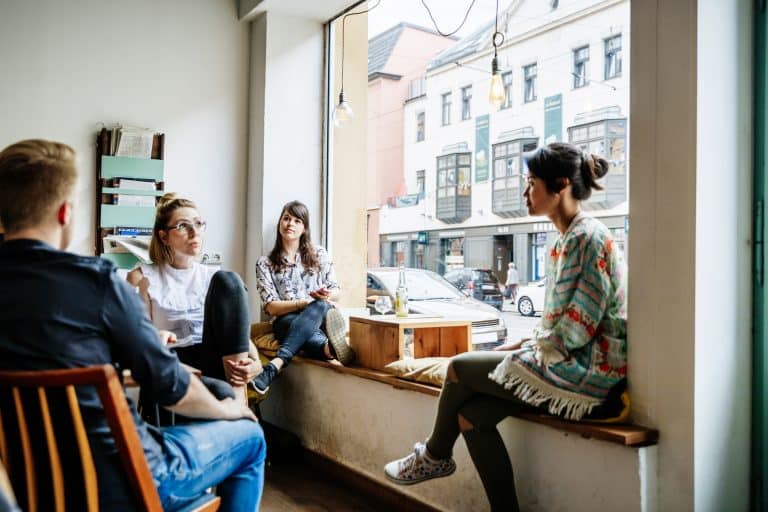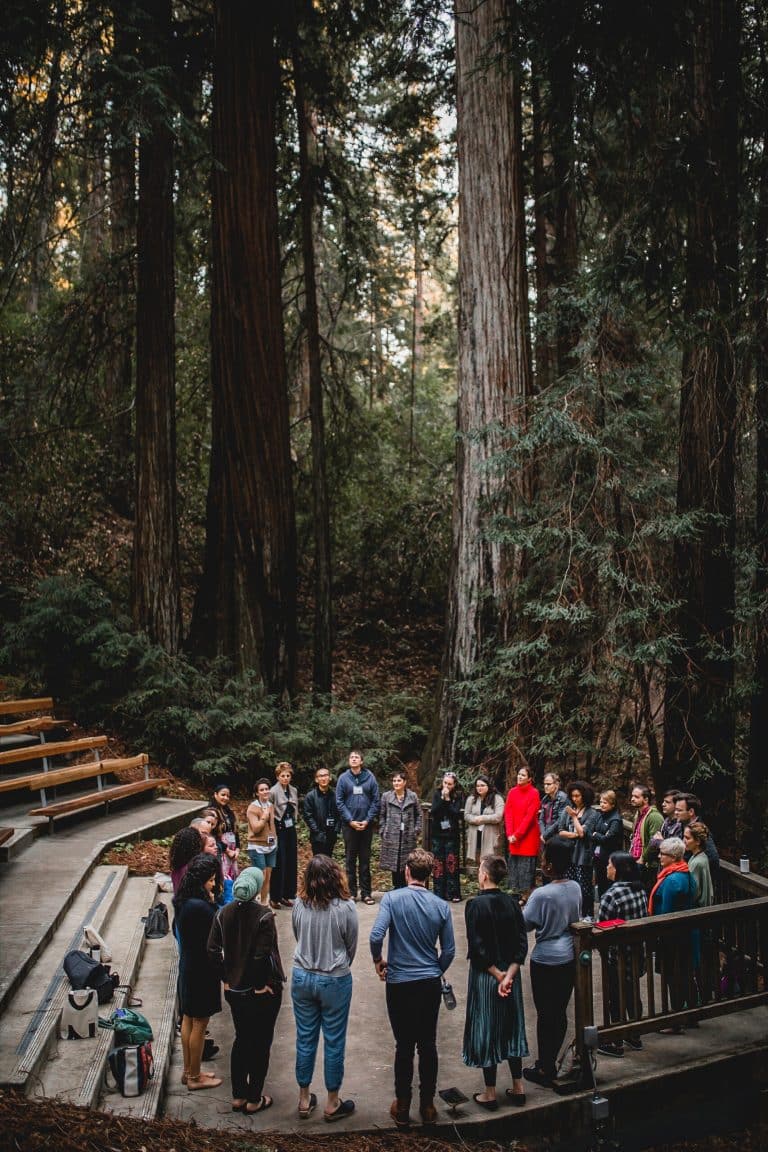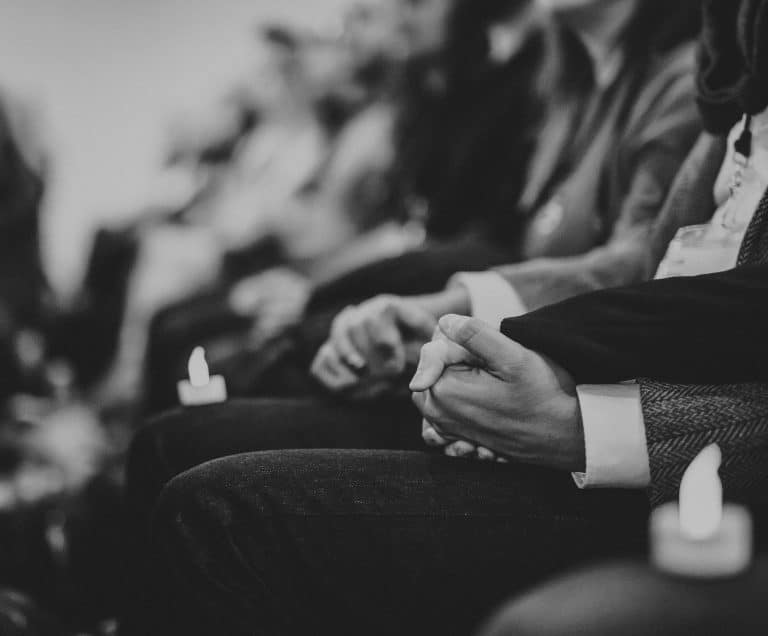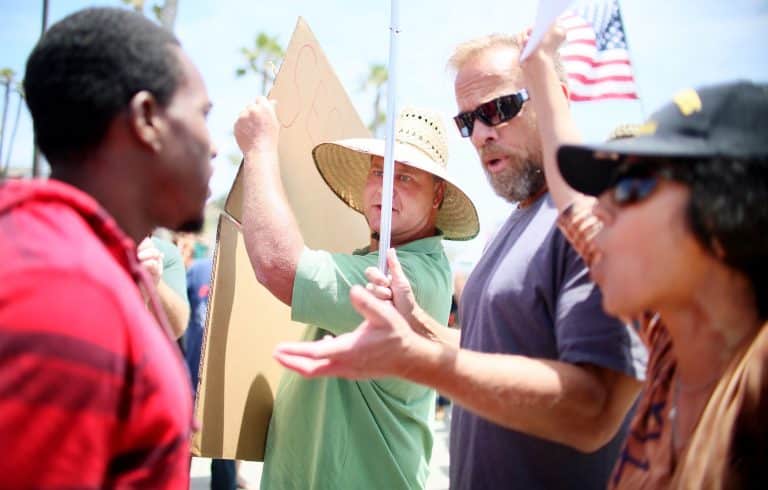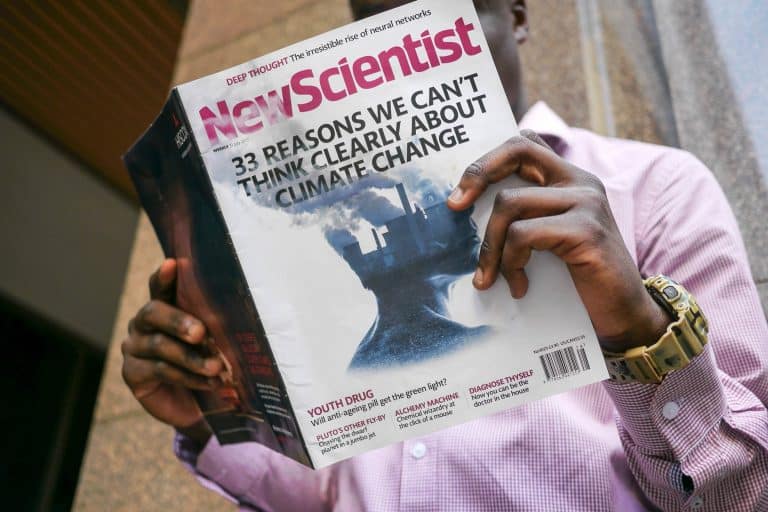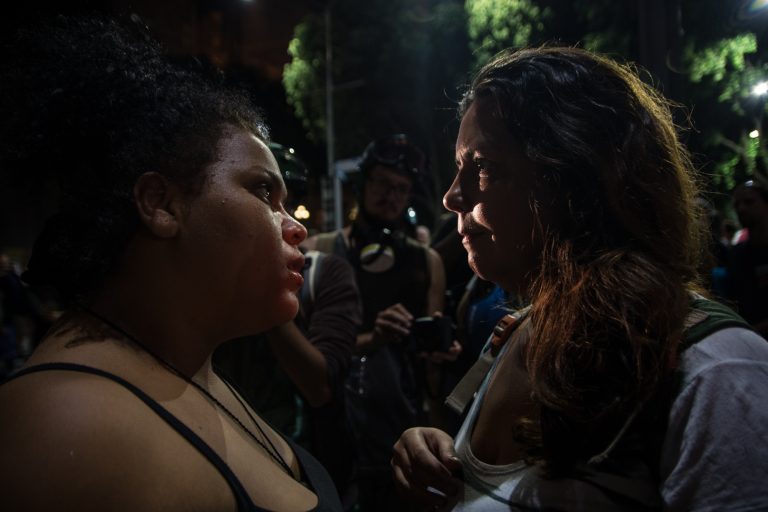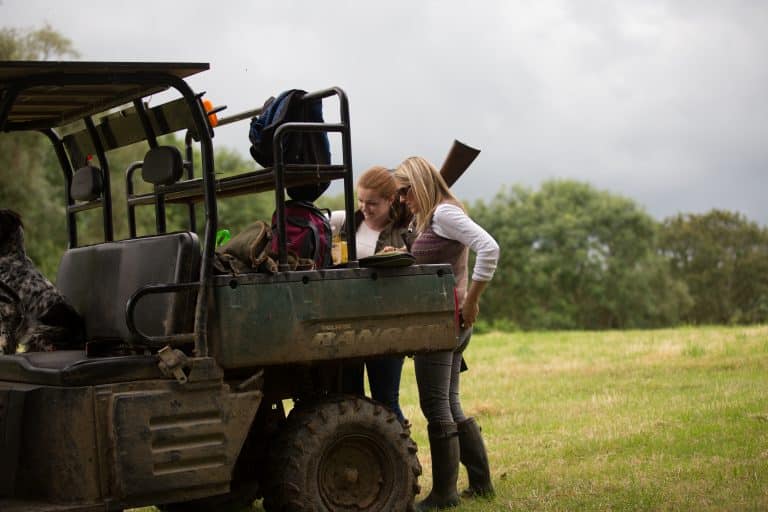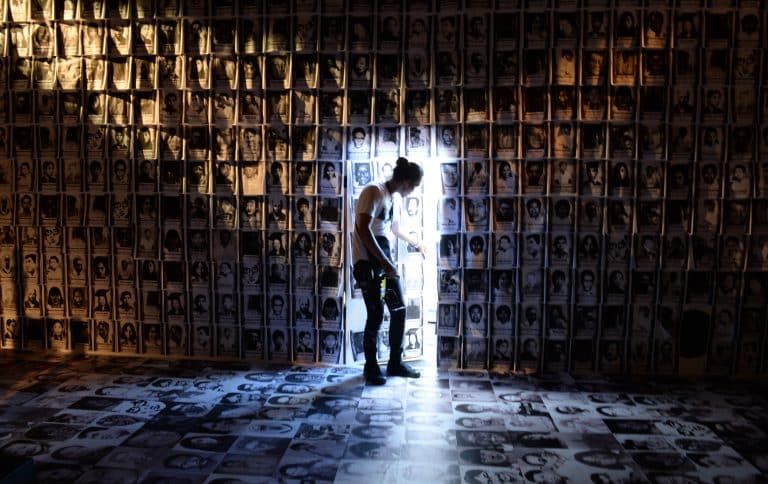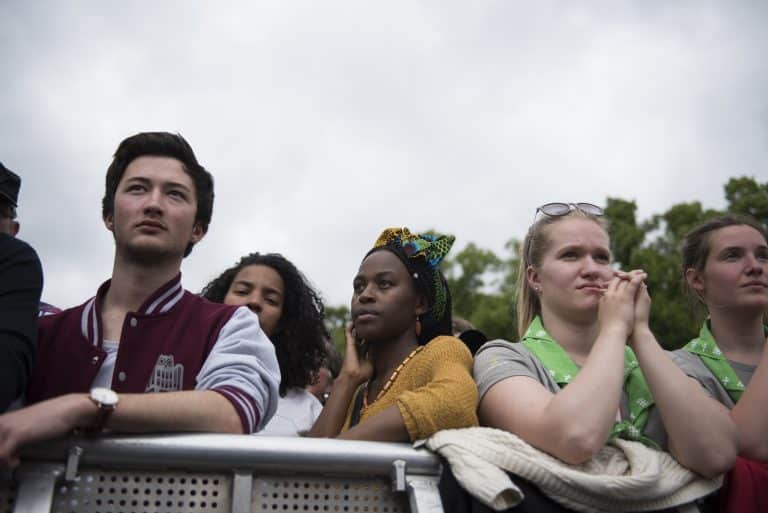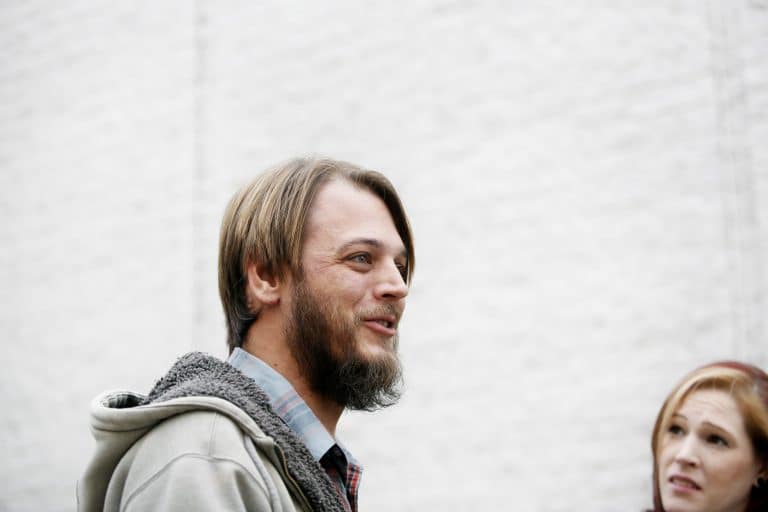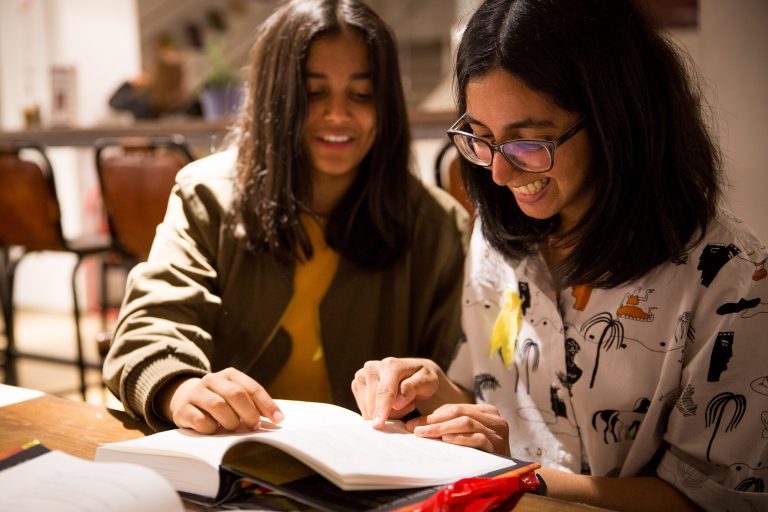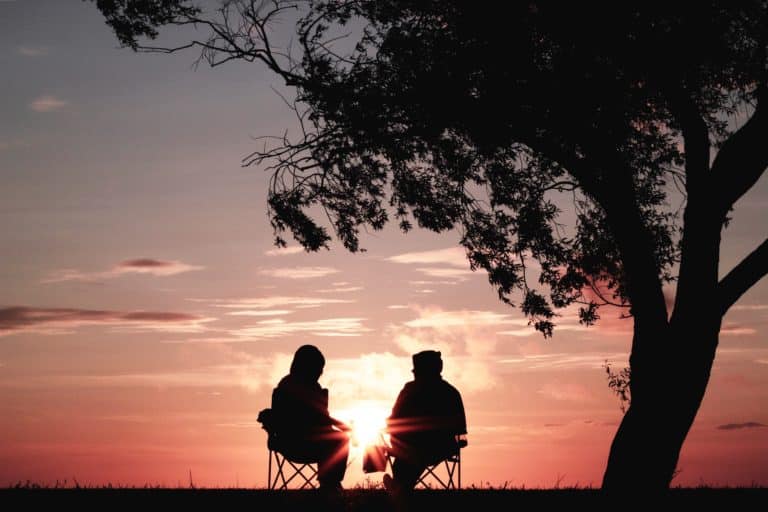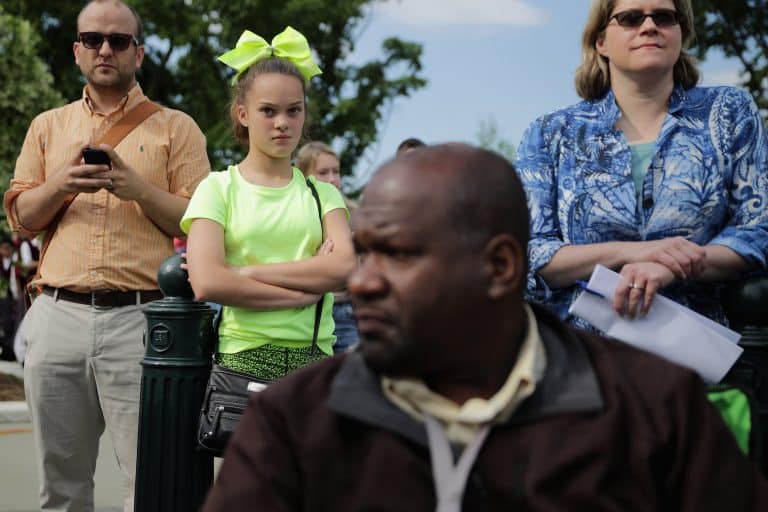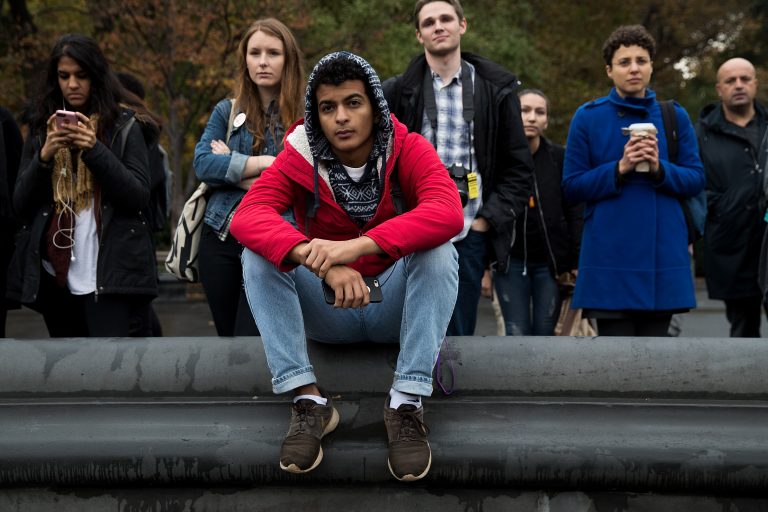Civil Conversations Project
View
- List View
- Standard View
- Grid View
20 Results
In our conversations about echo chambers and the necessity of speaking across difference, we often forget the importance — and difficulty — of disagreeing with the people most like us. On what's lost when we don't make that effort.
What does it look like to both humanize and challenge friends with opposing viewpoints? A pen pal program between two middle schools in Boston, Massachusetts and Ozark, Arkansas provides some answers — and doodles.
The work of building inclusive spaces is hard, lifelong work. But it can be nourished by a deep sense of abiding joy.
We often think of conversation as a means to communicate a specific point or a method to shift our perspective. But it can also simply be a vessel for the uncontainable.
We think of it as a spiritual practice, but in truth, mindfulness meditation is an exercise in cognitive self-examination. On the Buddhist practice as a powerful tool for all — for understanding ourselves and our enemies with more depth and compassion.
Sharon Salzberg on how to relate to the people whose views we find repugnant and frightening and with whom we can’t imagine standing on common ground.
Sharon Salzberg's advice for difficult conversations with family at Thanksgiving? Practice listening from a place of generosity and love — whether you agree or not.
Models and data show what’s happening to our planet, but are our conversations about climate change really about something deeper? A biologist poses a challenge to the scientific community, and to all of us: to infuse our debates not only with factual rigor, but with empathy and compassion, too.
It’s easy to respond to vitriol in kind. But, our columnist asks, what if we looked to examples of our better nature and chose to reflect back a spirit of kindness, instead?
On questioning the habit of vilifying “gun people” for a fundamental part of their lives and identities — and on the deeper understanding that might bring us closer to the solution to violence that we all seek.
A young man sets a resolution for himself, and for us: to engage deeply with those on the other side, not with the goal of being right, but to recognize the desire for good that we all share.
June 5, 2017
The Shape of Totalitarianism and the Meaning of Exile: Three Lessons from Hannah Arendt
Hannah Arendt's experience as a refugee during the Nazi regime, and the powerful lessons it has for our time.
Acknowledging the limits of our own experience, and the spiritual challenge of building deep relationships with those outside our cultural comfort zones.
A reflection on the emotional drain of civil conversation, and how we can reframe our thinking to see the best in each other — even those we deeply disagree with.
Literature has the unique power to make us feel less alone in the world by elevating our deepest stories and connecting us beyond the divides of time, space, and politics.
A recent college graduate embarks on a 4,000-mile walking trek across the United States. His only goal is to listen. A powerful story of encounter and lending a kind and judgment-free ear, even when it frightens him.
What if we considered our nation not as factions at war, but as members of a strained and troubled family? A look through the lens of the three stories that broken families tell — and what that marginalized, third story reveals about the echo chambers we've been called to step out of.
A Jewish rabbi and a Mormon bishop unite their voices in an invitation to unity, and remind us that our diversity in race, religion, and politics is what makes our nation great.
Previous
The Pause
Join our constellation of listening and living.
The Pause is a monthly Saturday morning companion to all things On Being, with heads-up on new episodes, special offerings, event invitations, recommendations, and reflections from Krista all year round.
Search results for “”
View
- List View
- Standard View
- Grid View
Filters
Listen
Read
